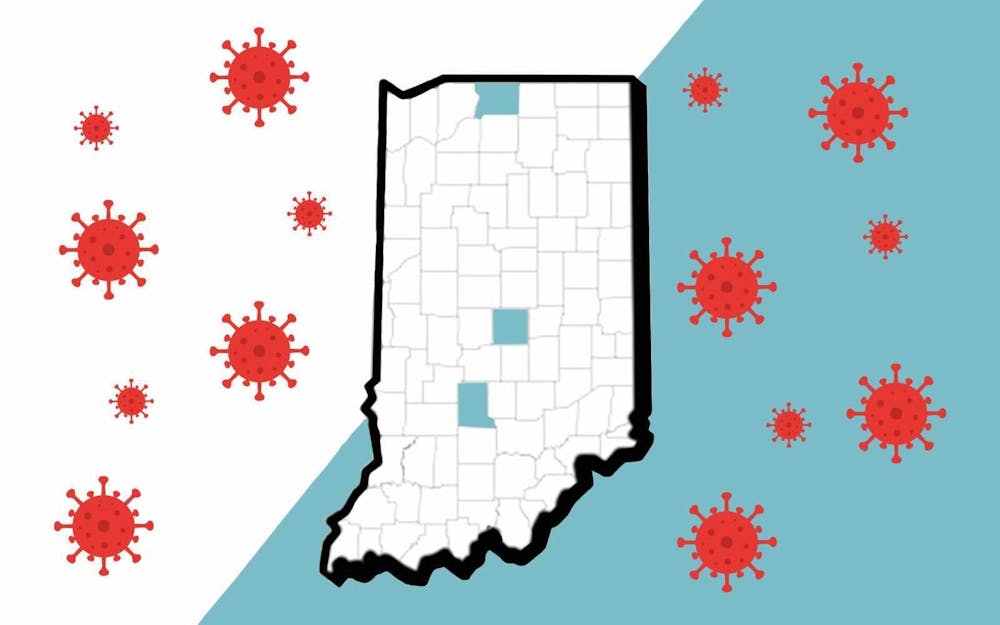An Indiana Senate bill amendment that would require local health officials to get approval to issue stricter emergency health orders than the state is causing concern for public health officials.
Senate Bill 5, which addresses local health orders and shutdown appeals, was authored by Sens. Chris Garten, Ron Alting and Mark Messmer. It was amended March 31 to prohibit local health officials from implementing stricter restrictions than the state during an emergency order, unless the restrictions are approved by a county legislative body or a city legislative body and a mayor, according to an IndyStar article.
The bill would also require the appointment of county health officers to be approved by the county legislative body, and it would allow local businesses to appeal shutdown orders in response to public health emergencies.
The bill has not yet been signed by the governor, but it passed the Indiana Senate on Feb. 8 and the Indiana House of Representatives on April 6, according to the bill’s official actions.
The amendment would require local health officials to obtain approval from a county legislative body or a city legislative body and a mayor before issuing stricter restrictions than a statewide executive public health order.
Despite Indiana’s mask mandate ending April 6, Gov. Eric Holcomb said March 23 local communities could impose stricter requirements if they chose. Monroe County Health Department Administrator Penny Caudill said April 9 that the mask mandate and physical distancing requirements will remain until at least May 28. If Senate Bill 5 is passed, stricter health orders could not remain in effect unless approved by a county legislative body or a city legislative body and a mayor.
Spending time to get approval for restrictions could be dangerous, said Dr. Paul K. Halverson, founding dean of Indiana University-Purdue University Indianapolis’s Richard M. Fairbanks School of Public Health.
“That has to be done quickly or people will suffer, and in some cases, they may die,” he said. “There are some things that have happened in COVID that have required a relatively quick response.”
He said city and county councils aren’t prepared to take on the approval process of stricter health orders. Counties becoming public health experts for the purpose of adjudicating appeal would take expertise they don’t have, he said.
Dr. Jon Macy, associate professor at IU-Bloomington’s School of Public Health, said policymakers should make decisions based on science and the recommendations of health experts.
Places with large student populations, like Bloomington, have different needs, Macy said. Not allowing local officials to respond in the way they think is best for their communities will have negative consequences, such as slowing down responses to emergencies and causing more people to get sick, he said.
Susan Jo Thomas, former president of the Indiana Public Health Association, said the bill assumes a uniformity in the needs of communities across Indiana.
“It may be that the folks in Jackson County are not having an outbreak, but let's say there's a big outbreak of it in Marion County,” Thomas said. “There needs to be someone that can quickly respond to that.”
Focus should be directed toward other public health issues, like low funding and unequal resources throughout Indiana, Thomas said.
“Out of all the things that need to be fixed, this ain’t it,” she said.
Rep. Matt Pierce, D-Bloomington, said Senate Bill 5 injects politics into discussions of public health. When people claim they have the right to be in a large crowd during a pandemic, he said, they ignore that making those decisions could harm the greater public.
Messaging to the public in health emergencies must be clear to avoid confusion, Pierce said. The Centers for Disease Control and Prevention and public health officials are still saying it's important to wear a mask, he said, yet the government has essentially said a mask mandate is only suggested but not needed.
“If you got rid of the mask mandate, but you think it’s important, why did you do that?” Pierce said.
He said pressure could also be put on county commissioners to vote to eliminate health orders so they aren’t politically challenged in the primaries.
“It’ll be much less likely that you have health orders based on the sound science of what’s needed to protect the public health,” Pierce said.




